‘A surge can take out a $5,000 tech setup in seconds’ – 7 things to unplug in a power outage to avoid a costly blowout, master electricians warn
Just one electrical surge can cause seriously expensive damage


When the power goes out, not many of us think of unplugging our devices. After all, there is no power, so what difference will it make?
It turns out, a lot. There are seven things you should unplug in a power outage to prevent thousands of dollars worth of damage when the power comes back on.
Here, master electricians have broken down how to prepare your home for a power cut to protect your precious home tech.
7 things to unplug in a power outage
1. TV setups

Your TV and surround sound systems can be easily damaged in surges.
From small TV rooms to home movie rooms, it is vital that you unplug your TV systems in a power outage, Ryan Gregor, owner and head electrician at RCG Electrical begins.
He explains, ‘TVs and home theater systems are packed with sensitive circuits. One surge can take out a $5,000 setup in seconds.’
The reason? Andrew Roughley, director at D.R. Electrical explains, ‘When the power comes back on, you can sometimes get a surge or fluctuation in voltage and that can damage the internal components.’
To avoid having to unplug all of your entertainment devices, or to protect against surges in the middle of the night, you can invest in a six-outlet surge protector strip from Walmart to plug your devices into.
Design expertise in your inbox – from inspiring decorating ideas and beautiful celebrity homes to practical gardening advice and shopping round-ups.
2. HVAC systems
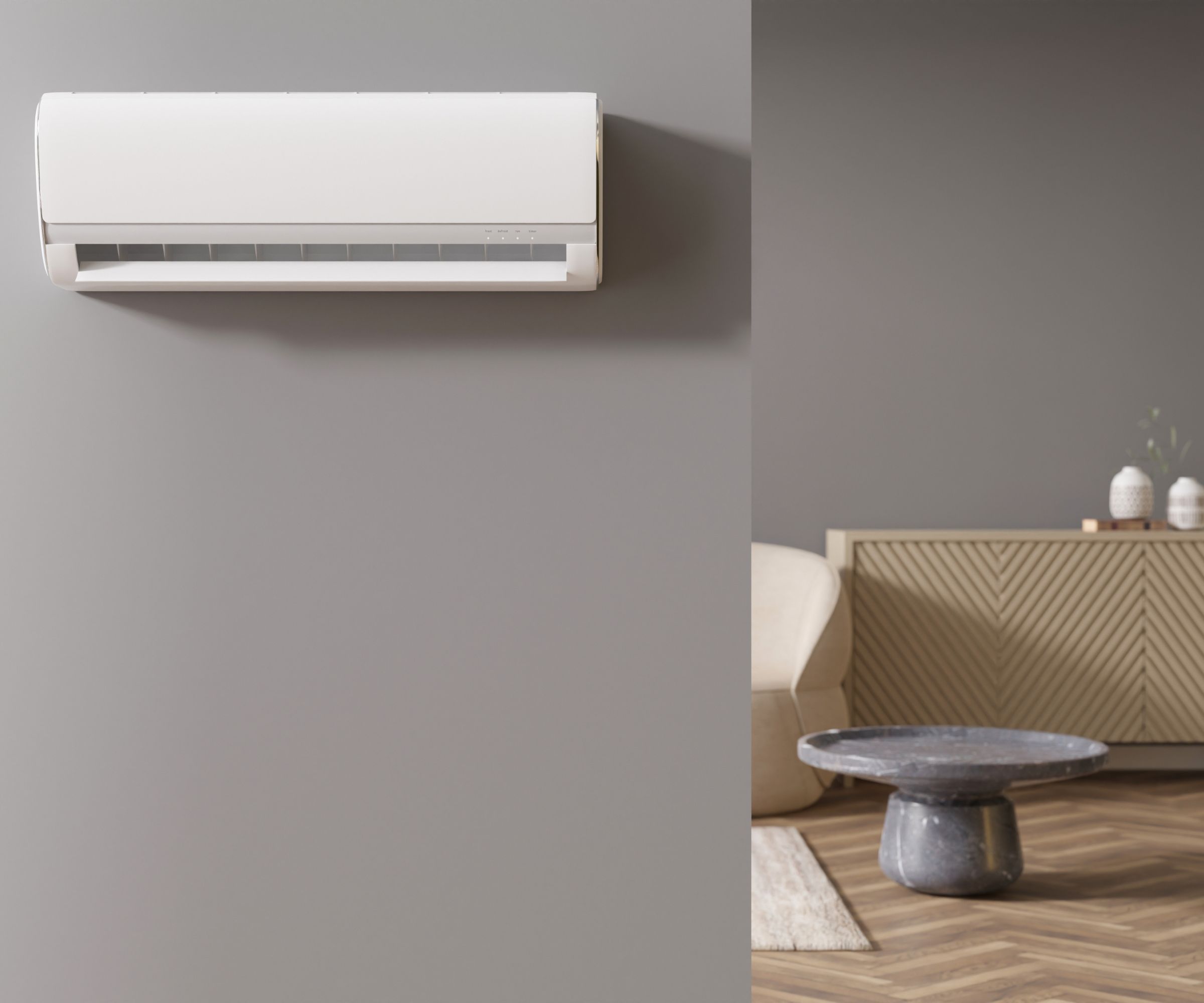
Flip the breakers to avoid damage when the power comes back on.
If you don’t want to see any early signs your HVAC system needs replacing, then disconnect your heating and cooling systems during a power outage, urges Daniel Mock, VP of operations at Mister Sparky.
Rather than unplugging the units, you may be able to flip the breakers, Daniel adds, helping to avoid damage from surges. For this, it is handy to have a battery-operated flashlight, from Walmart, to navigate your home safely.
3. Small kitchen appliances
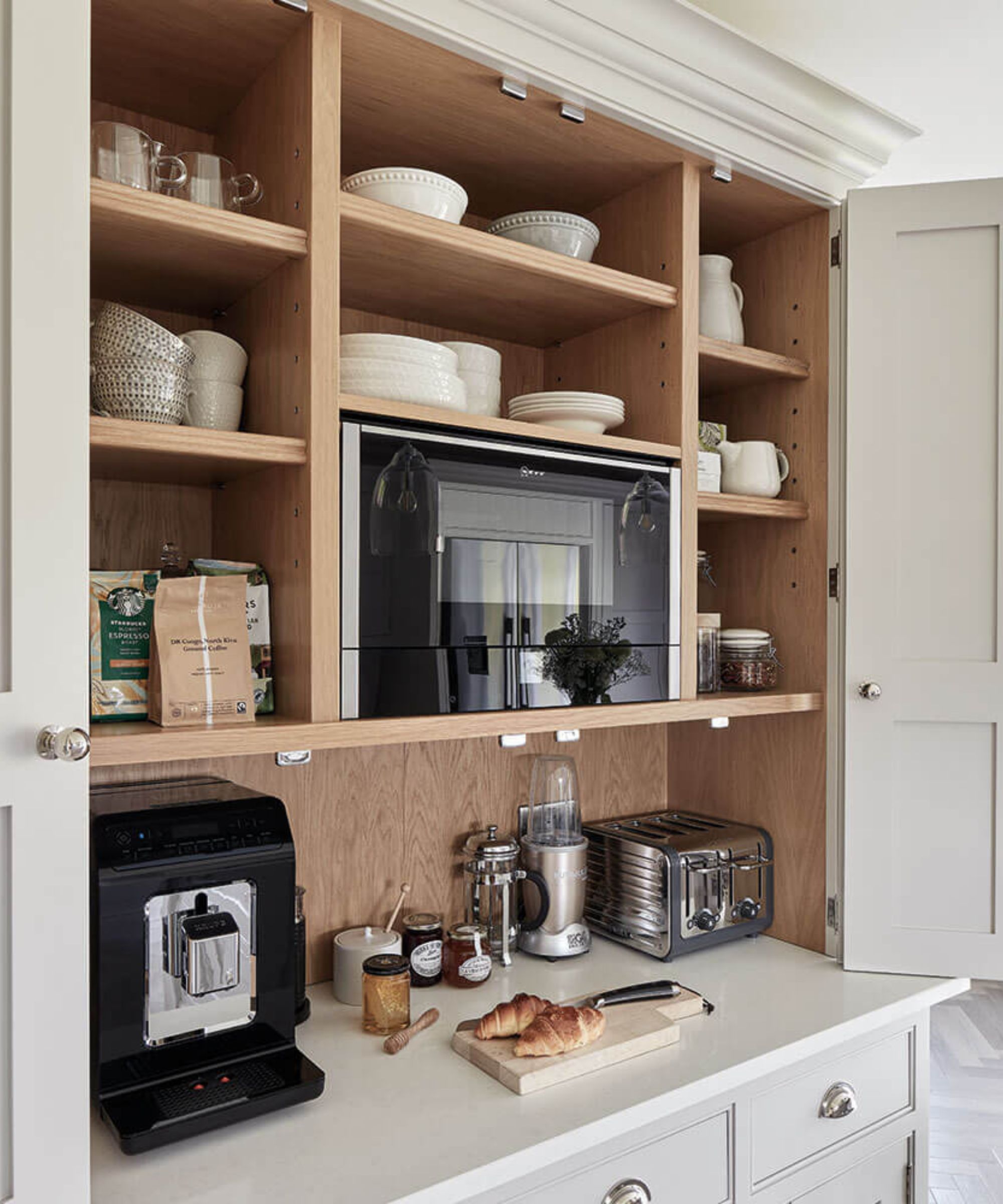
Smaller appliances should be unplugged to protect them from surges.
Kitchen appliances should be unplugged to protect them from surges, says Sergey Nikolin, president at Product Air Heating & Cooling. ‘Anything that uses motors or compressors, like fridges, freezers, even some microwaves, can get shorted out or damaged when the power kicks back.' However, these tend to be appliances you do not need to unplug in a heatwave.
'Motors and compressors naturally pull a lot of power when they start up – that’s normal,' continues Sergey. 'But when the power comes back on after an outage, your whole house’s electrical system can get higher voltage because all the appliances trying to restart at once can overload the circuit.’
Keeping some freezer blocks, from Target, in your freezer at all times will help you keep your food cooler for longer should the power go out. Insulated food bags, also from Target, can make them more efficient.
4. Washers and dryers
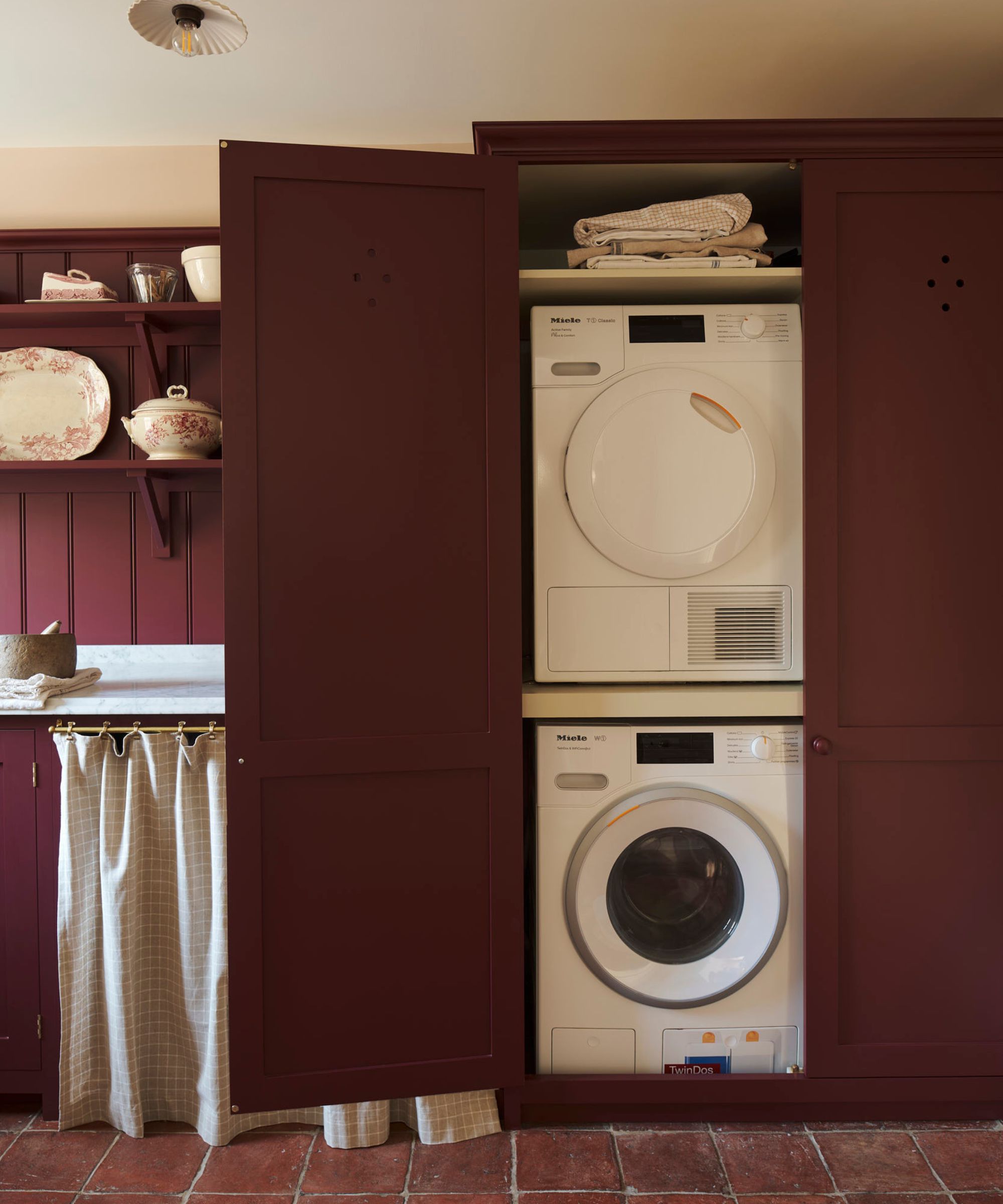
They might be annoying to unplug, but in longer outages, it is worth it.
Ryan also suggests unplugging washers and dryers when the power goes out. He explains, ‘These appliances draw a lot of power. If they’re mid-cycle when the outage hits, a rough restart can damage their internal boards or blow a fuse.’
These are also important appliances to unplug before going on vacation to keep your home safe from common fire risks.
5. WiFi routers and modems

Your WiFi router can be tricky to replace, so protect it in a power outage.
Although you should never turn your router off at night, it is wise to unplug it during a power outage.
As with other small home tech, Brendan McCarthy, CEO and owner of SALT Service Company, shares, ‘Most folks don’t think about these, but a surge can shut down your internet equipment. I’ve had to replace mine before, and trust me, it’s a hassle you don’t want.’
6. Home security systems
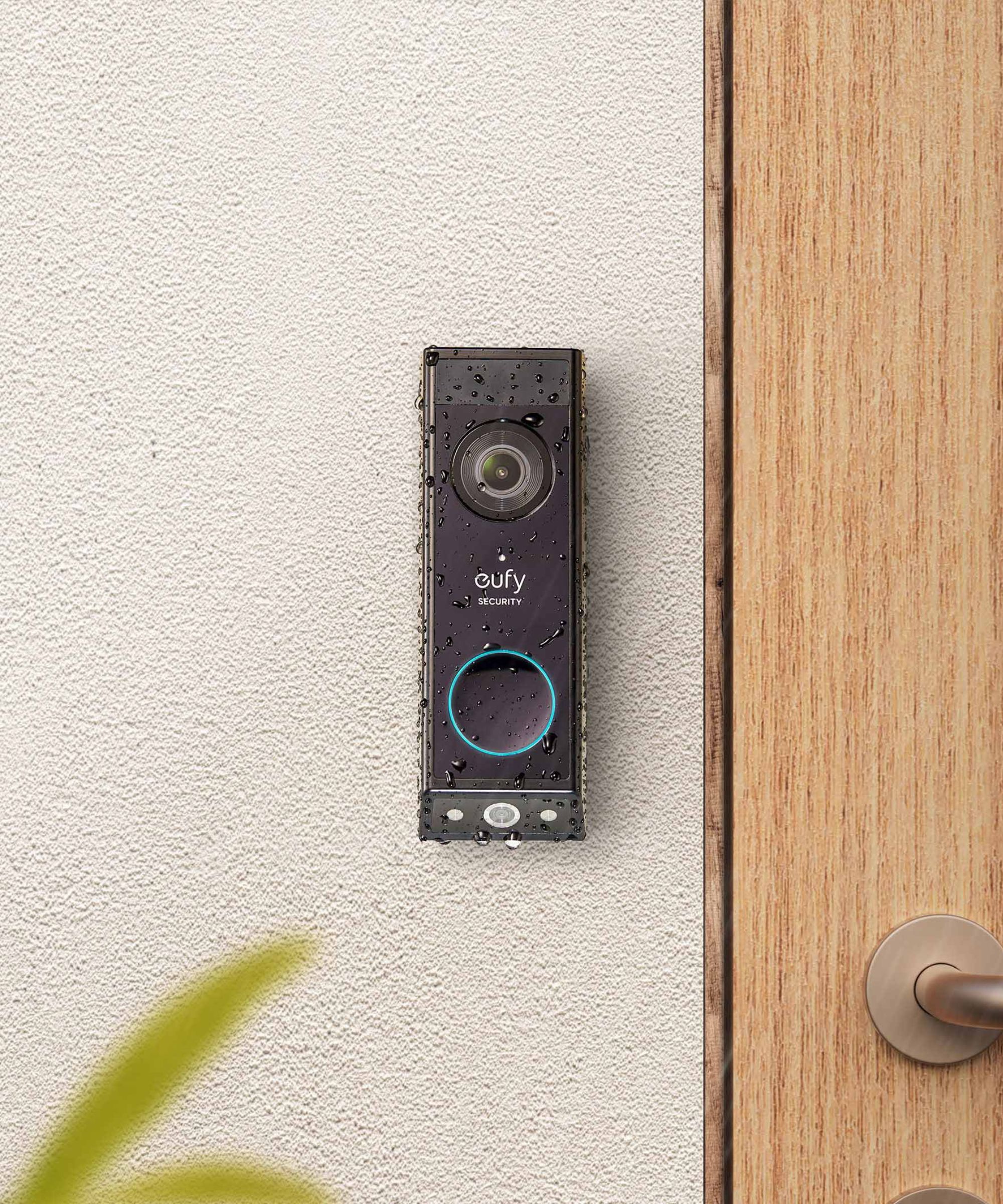
Some camera doorbells are battery powered, protecting them from outages.
Brendan continues, ‘Unless your system has a battery backup, I recommend unplugging home security systems. A surge can damage sensors or even knock the whole thing offline – just when you need it most.’
When setting up a smart home, consider using a backup battery, or investing in battery-powered tools such as the best wireless doorbells, (we like the eufy Smart WiFi Battery Operated Video Doorbell, from Best Buy) to avoid losing all protection in your home.
7. Computers and consoles

Unplug laptops from chargers, too.
Most things in your home office will need unplugging, including computers, monitors, and printers, explains Brendan. ‘If you’re like most people, your computer holds everything – work files, photos, you name it. I always unplug mine during an outage. One unexpected surge can wipe it all out or kill the machine completely.’
If you are an avid gamer, then unplug your gaming consoles, too, he adds. ‘These aren’t cheap, and they’re just as vulnerable as a computer. A surge can knock out your console or corrupt saved data beyond repair.’
A surge protector outlet strip, available at Best Buy, can protect expensive consoles without the need to unplug.
What to shop
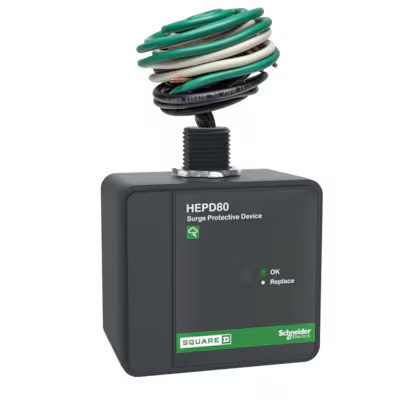
Square D brand Home Electronics Protective Devices (HEPDs) are compact and affordable surge suppressors designed and is compatible for any brand residential load centers. HEPDs work together with surge protection plug strips to provide surge suppression for sensitive electronics.
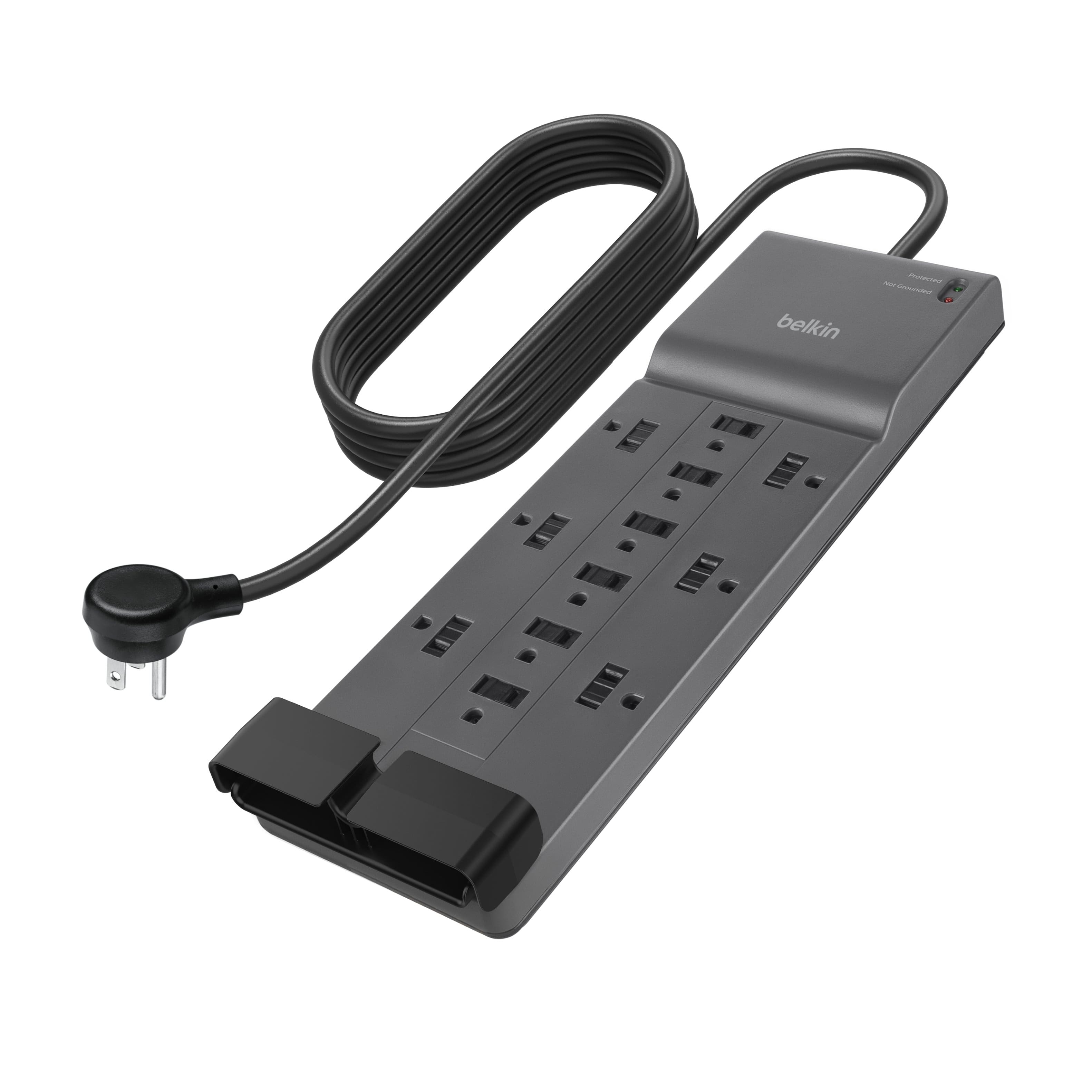
This 12 AC outlet surge protector with 8-foot cord keeps your electronics and appliances safe via 3940 joules of surge protection.
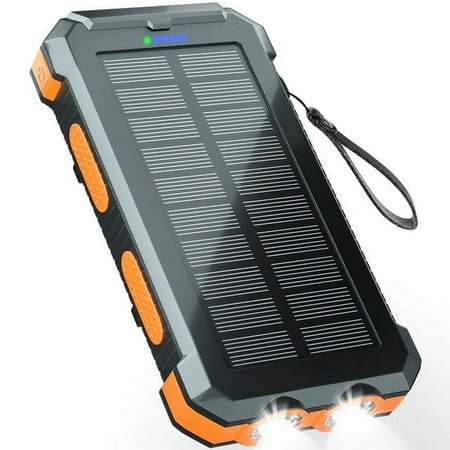
This portable power bank with a large-capacity battery, dual 5V USB ports , and a solar panel for charging phones in power outages.
FAQs
Can a power surge damage a mobile phone?
If a mobile phone is plugged into the mains with a charging cable, then a power surge can damage the phone, potentially beyond repair. As a result, it is best to unplug phones from mains supplies if the power goes out.
What is the difference between a power surge and a power outage?
A power outage is a complete loss of power (often called a power cut), while a power surge is a sudden, brief increase in voltage, usually a result of power coming back on after an outage. This surge can damage many household electronics, which is why it is wise to unplug them during longer power outages.
Meet the experts
Andrew Roughley is the owner of DR Electrical, with over 20 years of experience in the electrical services industry. Andrew is passionate about sustainable energy and delivering top-quality, safety-compliant electrical services for commercial and residential clients.

Brendan McCarthy is the CEO and owner of SALT Service Company, a rapidly growing, family-owned home services provider based in Austin and Hutto, Texas. He has over 14 years of hands-on industry experience, having started as a lighting technician and evolved through roles in hydraulic and mechanical systems instruction, ultimately leading to the founding of SALT.

Daniel is the Vice President of Operations of Mister Sparky, a franchise that has a nationwide network of residential service contractors.
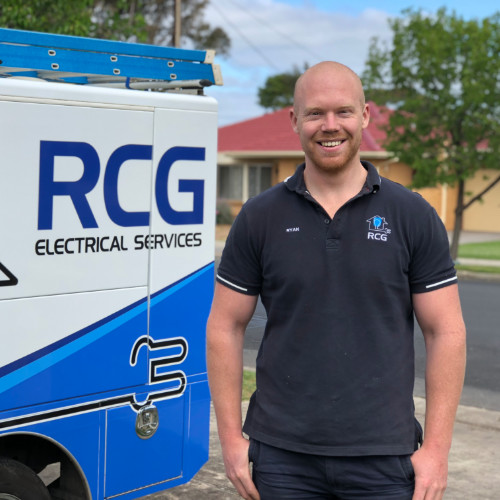
Ryan Gregor, the founder of RCG Electrical, has over a decade of experience in the electrical field, driven by a lifelong passion for understanding and harnessing the power of electricity. His expertise spans residential, commercial, and solar electrical solutions, positioning RCG Electrical as a trusted and innovative provider in the industry.

Sergey Nikolin is the President at Product Air Heating & Cooling, LLC. Drawing on his extensive experience of electrical systems, HVAC, and indoor air quality.
Luckily, there are some ways you can get your home emergency-ready, including installing whole-home surge protectors, says Daniel Mock. He explains, ‘The easiest step to protect your home is to buy whole-house surge protectors. These devices, which resemble power strips, work automatically to divert extra electricity to each outlet's grounding wire and help protect your appliances.’

Chiana has been at Homes & Gardens for two years and is our resident 'queen' of non-toxic living. She spends most of her time producing content for the Solved section of the website, helping readers get the most out of their homes through clever decluttering, cleaning, and tidying tips. She was named one of Fixr's top home improvement journalists in 2024.